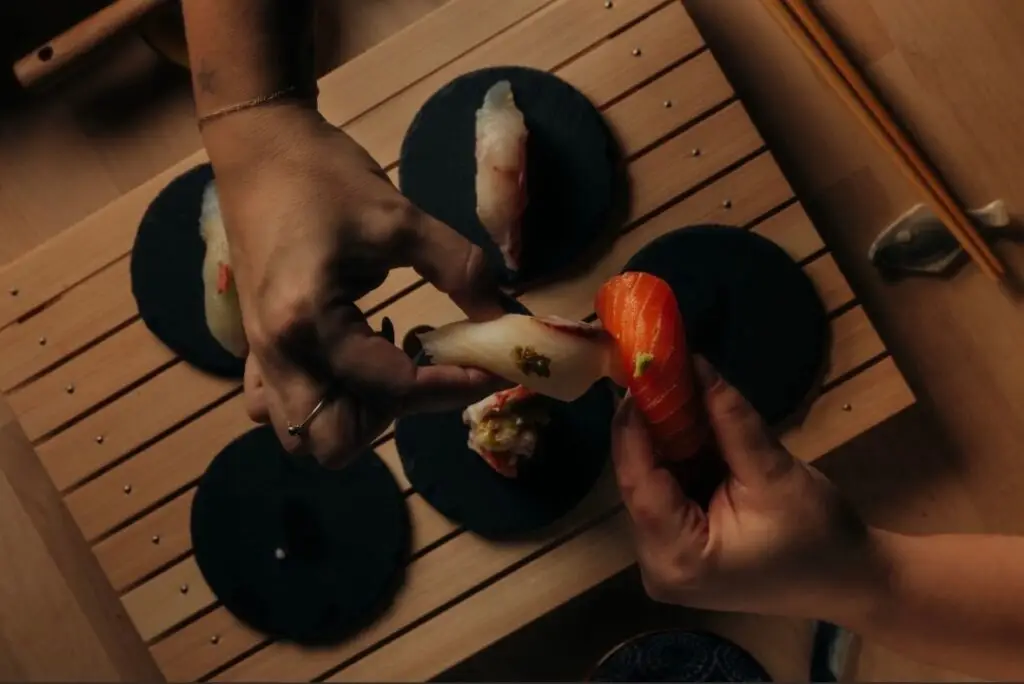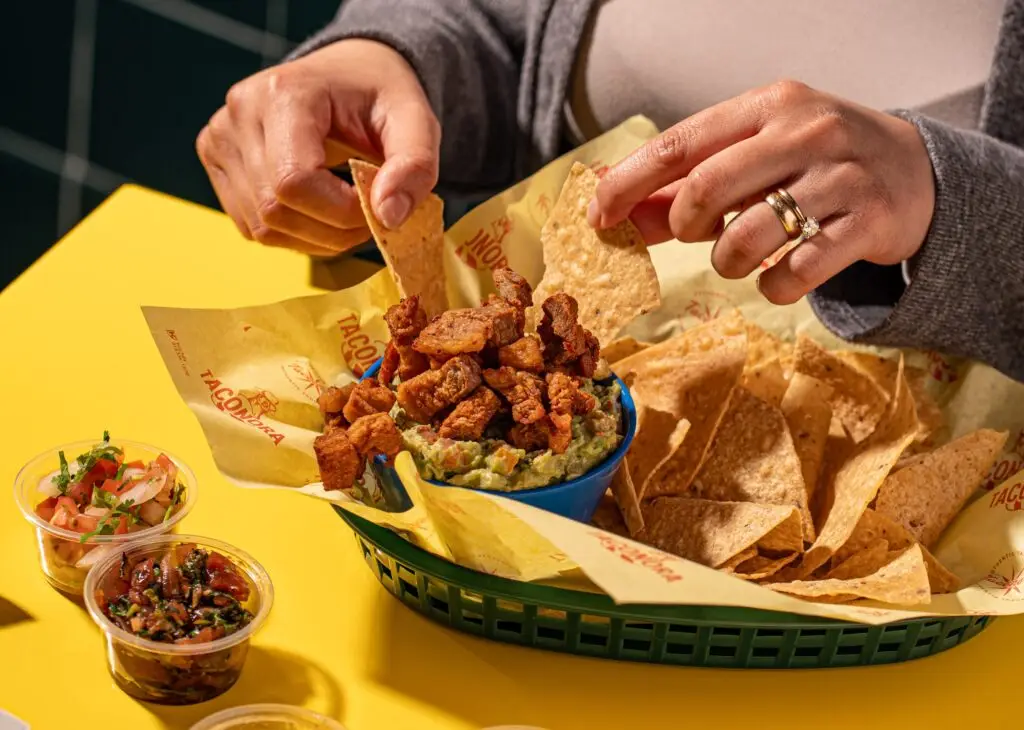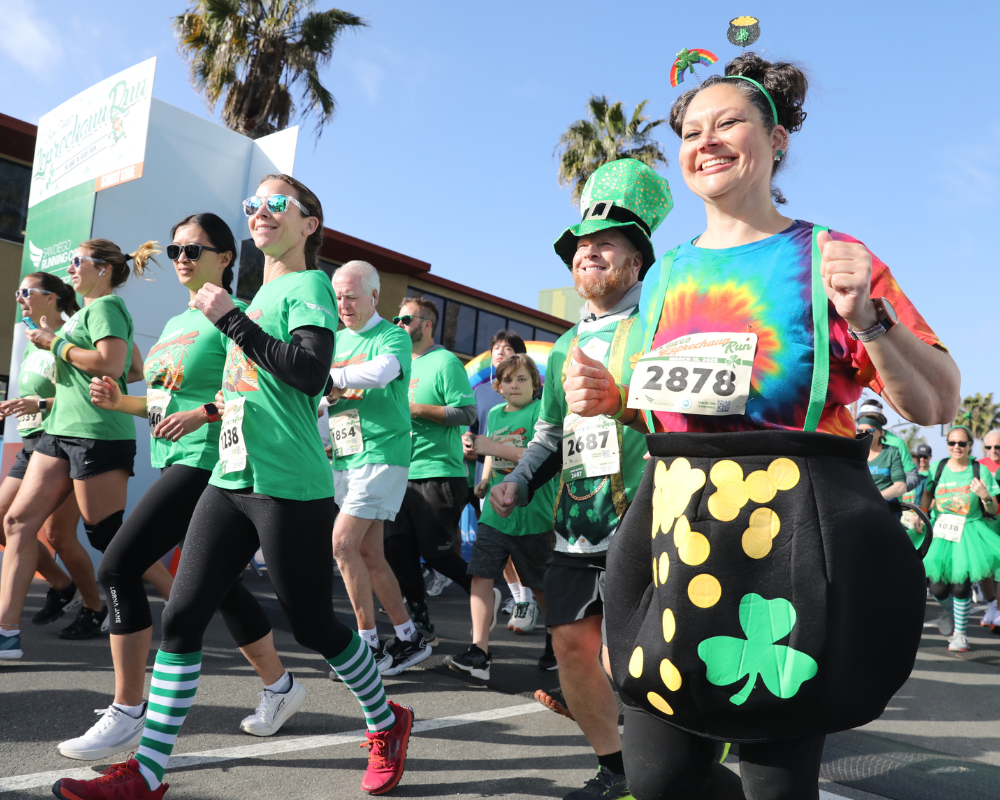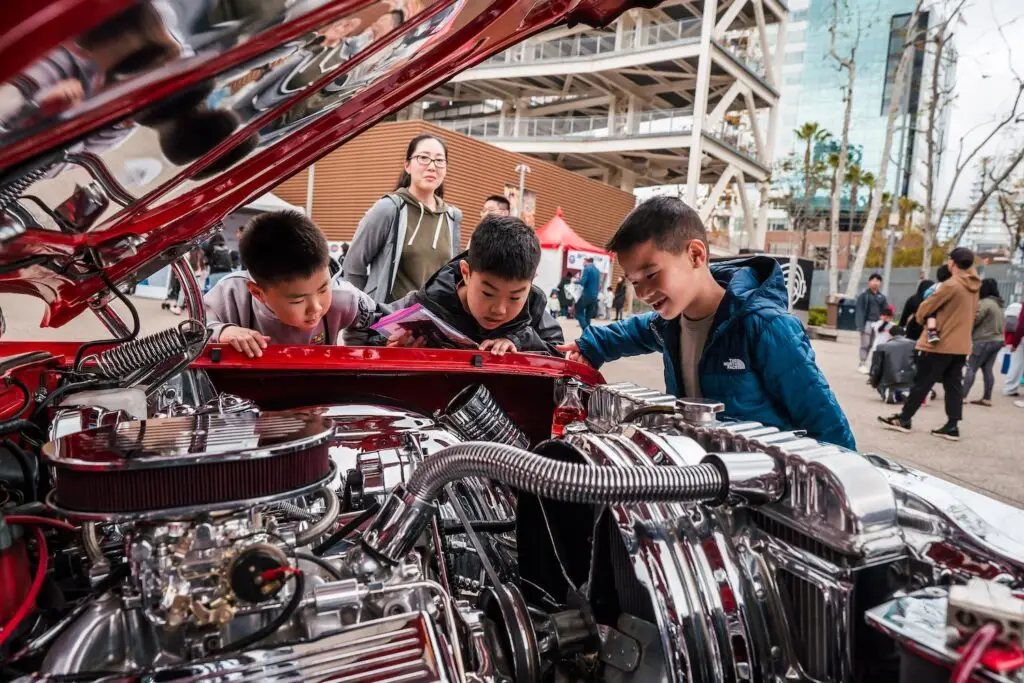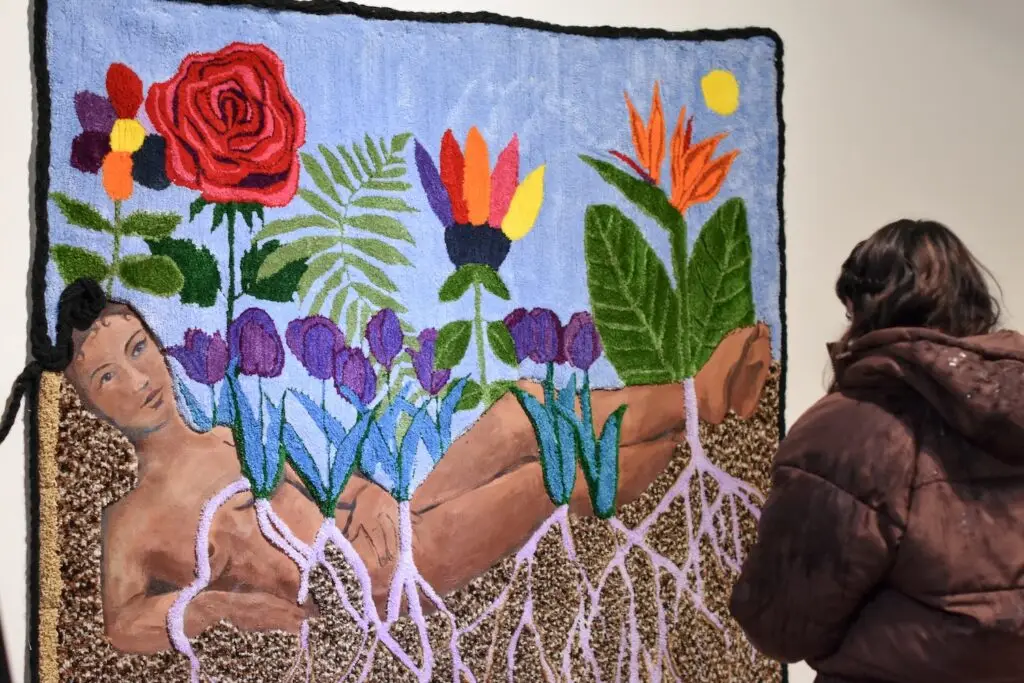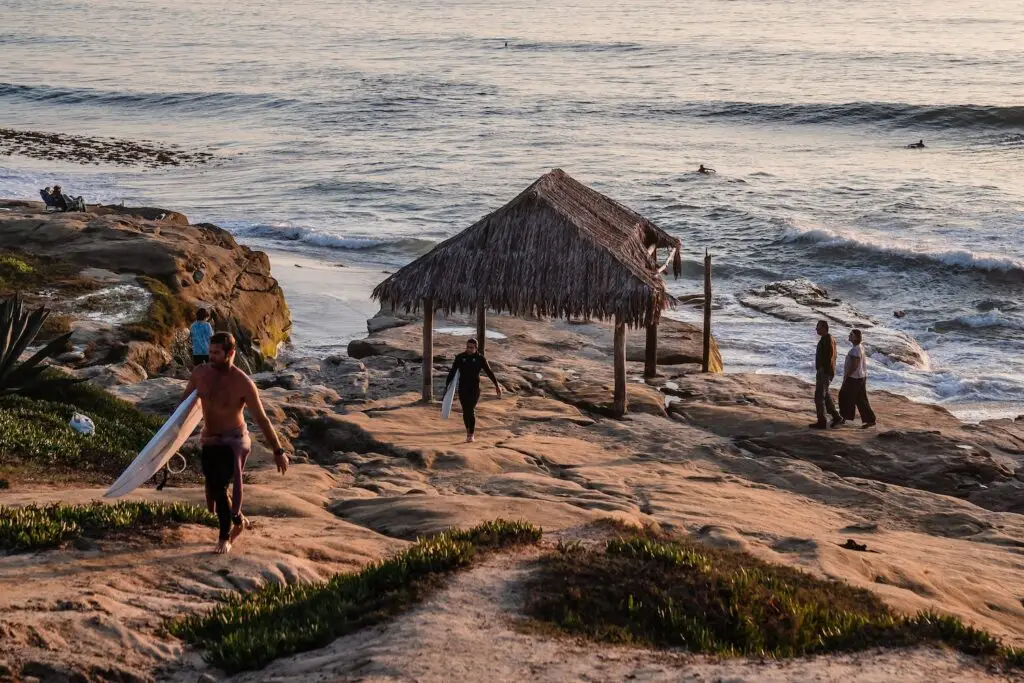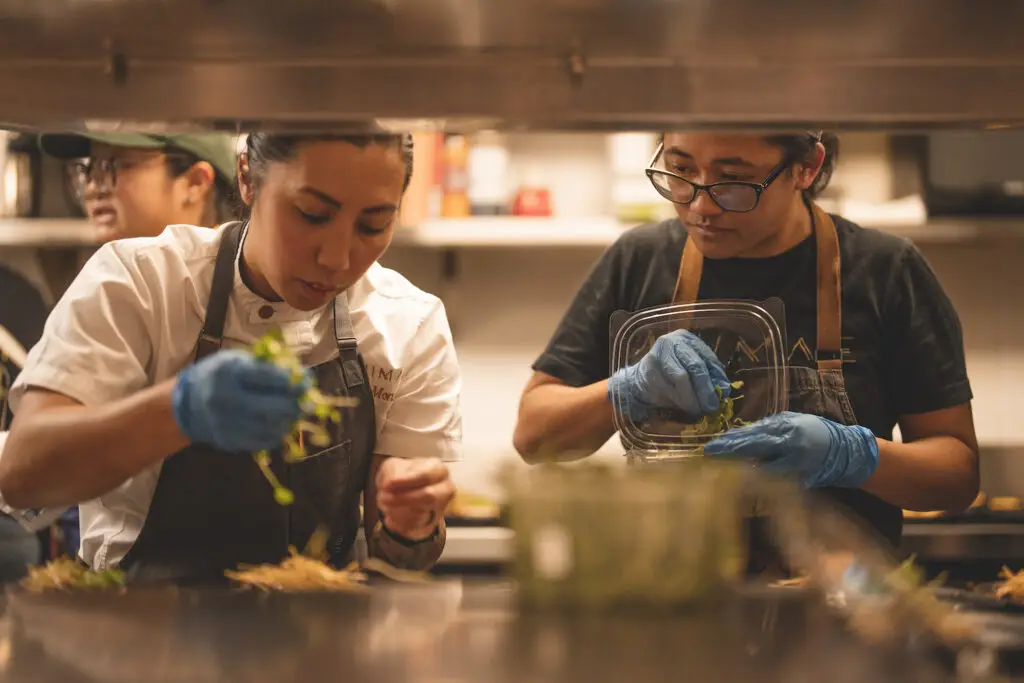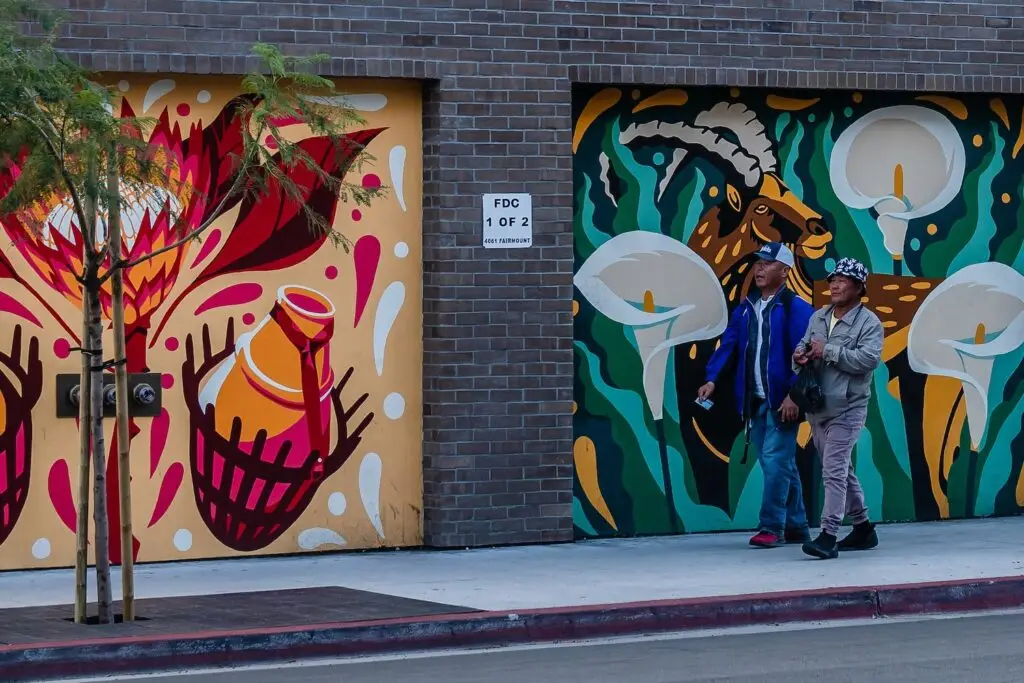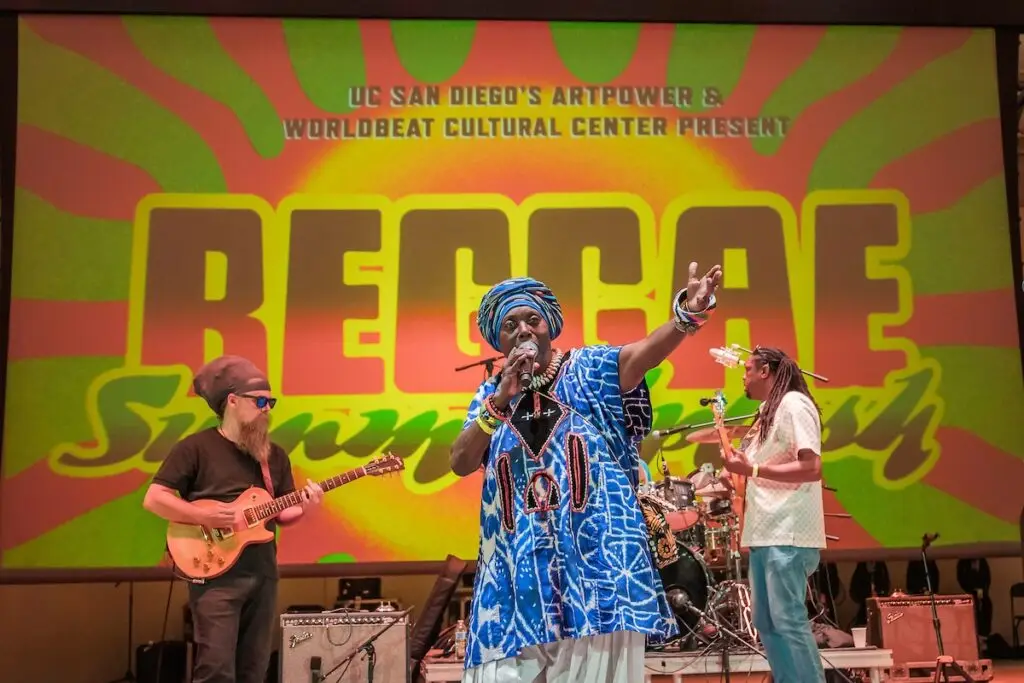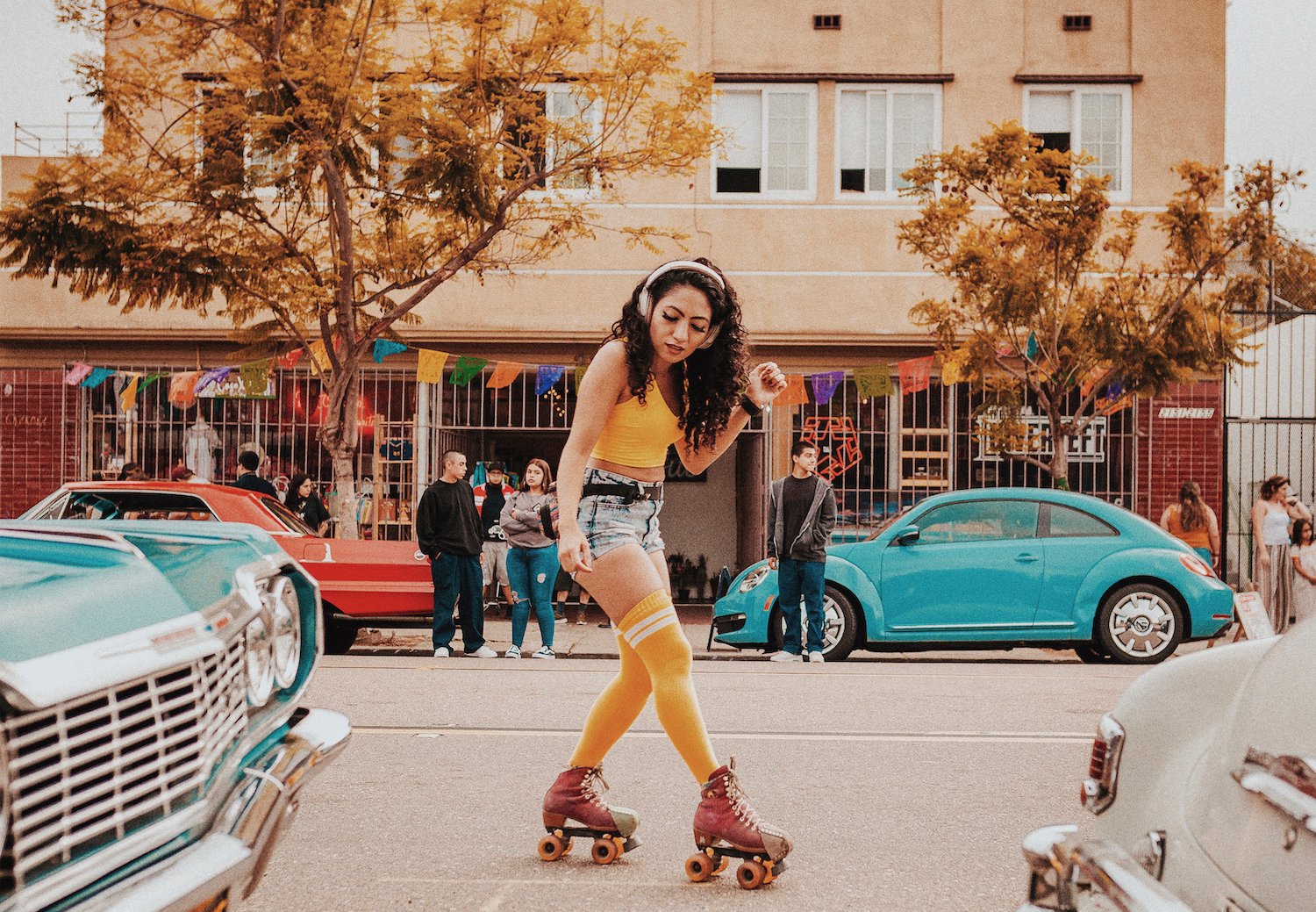Barrio Logan is always a jolt to the senses. Strolling Logan Avenue from Chicano Park to National Avenue, grabbing a Mexican mocha at Por Vida coffee, stopping by Border X Brewing to see if they’re hosting a lotería game, housing a loaded hot dog amid Barrio Dogg’s lowrider-themed décor—there’s no bad way to spend a day here. The vibrant storefronts—vending traditional Mexican embroidery, bilingual books, and sweatshirts emblazoned with Spanish slang—are a testament to the pride this Chicano community feels to its roots.
Barrio Logan’s population is 80 percent Hispanic. Up until the 1950s, the area was mostly a residential neighborhood housing almost half of the city’s Spanish speakers. But rezoning laws brought in junkyards, and, in 1963, the I-5 was built, bisecting the community. It was in the late ’60s, after the Coronado Bridge opened, that the barrio assumed its character, with residents fighting for the construction of Chicano Park and the maintenance of public green spaces in the area.
Since then, Barrio Logan has remained an activism stronghold, with community groups coming to the mat time and again against threats like gentrification and bad air quality. Today, the area is a hotbed of culture and a growing destination for food and shopping amid lowrider shows and street festivals.
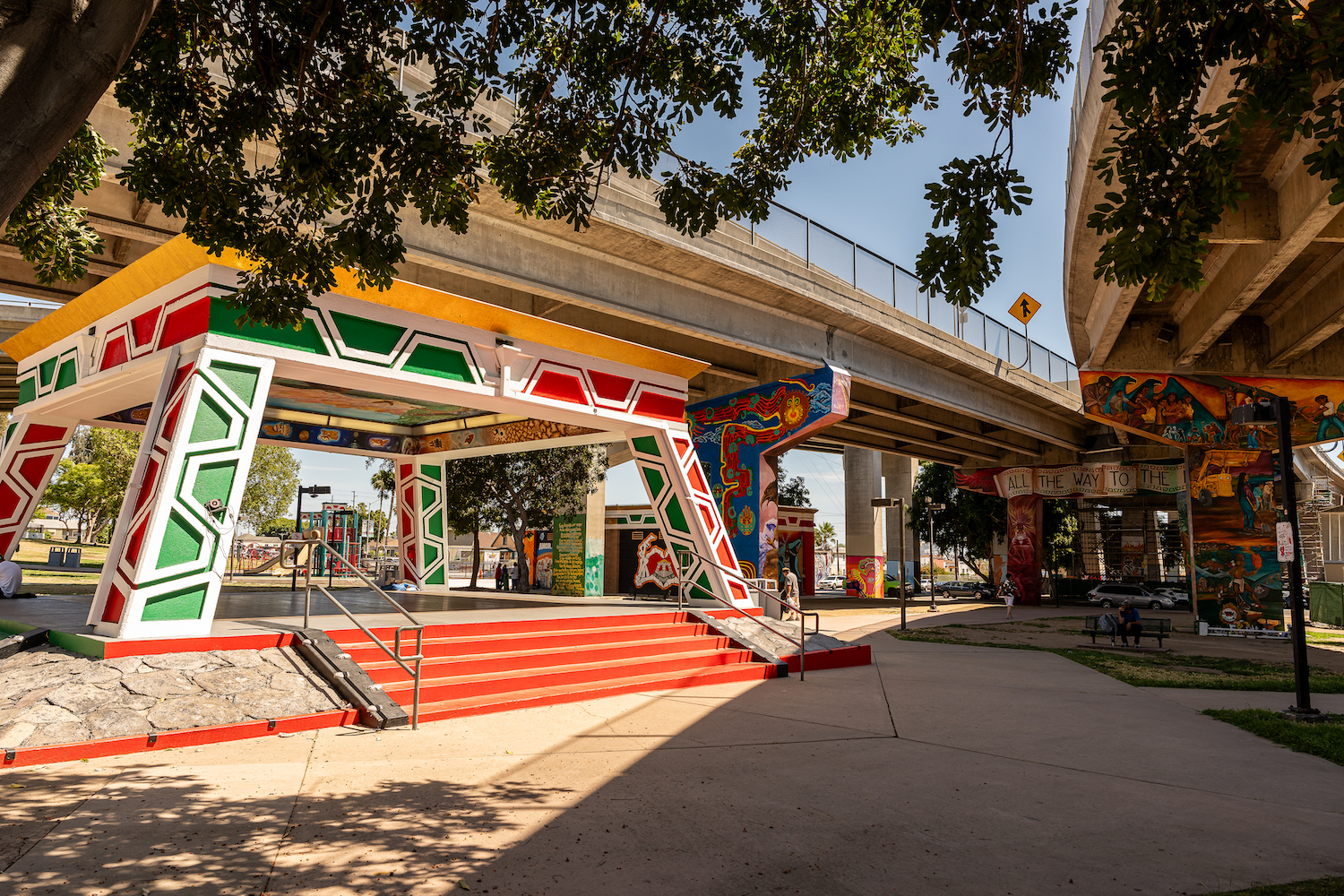
Things to Do in Barrio Logan, San Diego
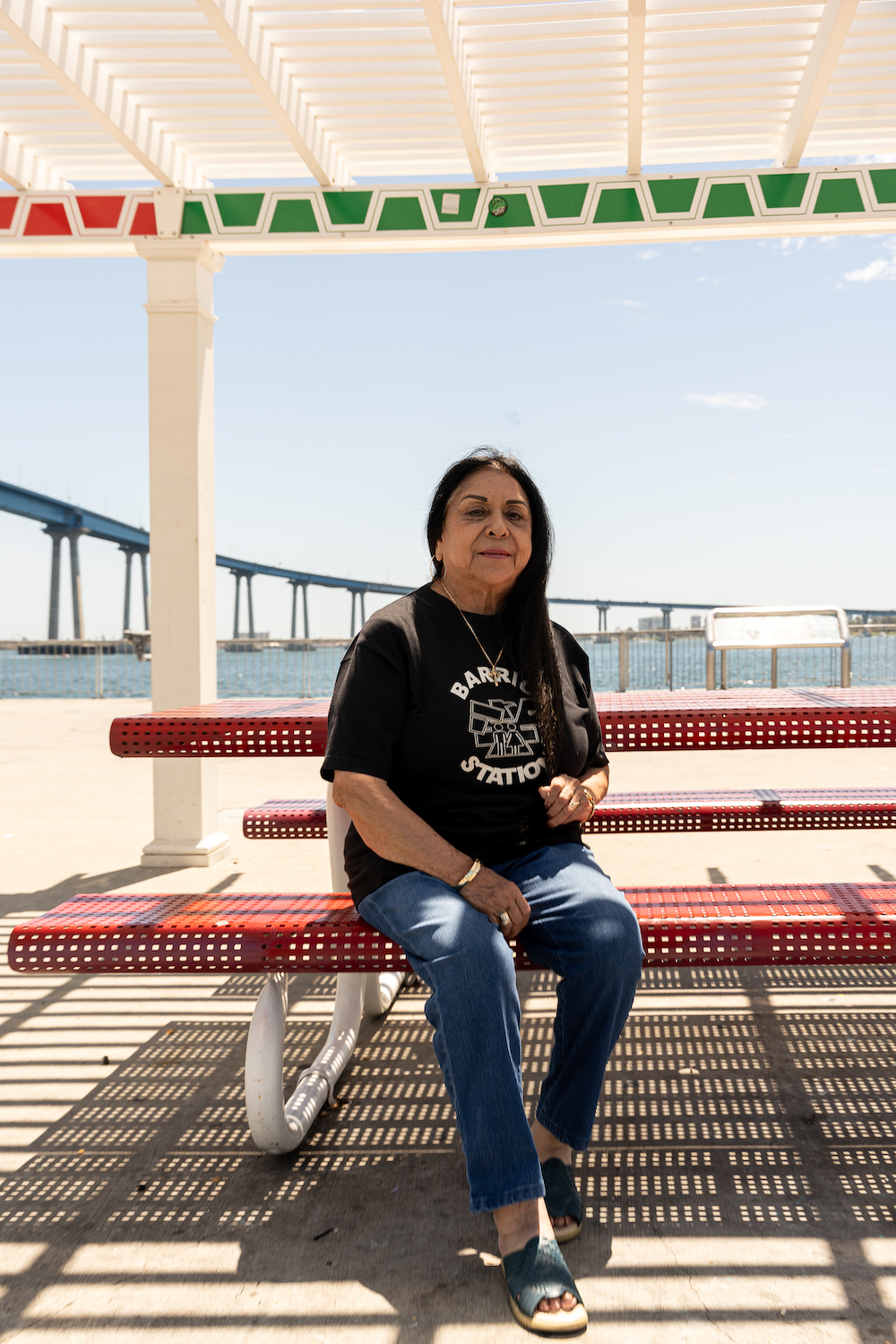
Eighty-three-year-old Barrio Station Executive Director Rachel Ortiz grew up within a few blocks of Chicano Park, with her parents and sister working in the fish canneries before the I-5 highway arrived. “I remember after work [the employees] had that fish smell on them, and everybody embraced it—people could buy homes or buy a new car. [They could] support their families,” Ortiz says.
At the nonprofit youth center Barrio Station, she provides a physical space where neighborhood kids can gather after school to exercise, box, use computers, and find support and mentorship. “That way, they are not on the street,” Ortiz adds. When she’s not at the center, here’s where she likes to hang out in the neighborhood.
Breakfast with a Side of History at Las Cuatro Milpas
Founded in 1933, Barrio institution Las Cuatro Milpas has “been there since I was a girl,” Ortiz recalls. “My parents would go in there and buy fresh-made corn and harina tortillas.” Nowadays, she orders chorizo with eggs, rice, and beans off the taco shop’s letterboard menu. Counter-serve and cash only, the restaurant has remained immune to the tug of trends and tech in its near-century of operation—but Ortiz isn’t complaining. “I would not want them to change a thing there,” she says.
Fresh Tamales at Northgate Market
Northgate Market is a community hub in Barrio Logan. The supermarket’s hot food stand slings beef, corn, and cheese tamales with beans. “They are always fresh, soft, steamy, and juicy,” Ortiz says. “The flavors are all delicious, but I favor the beef.”
Chow Down Near Chicano Park
Because of the restaurant’s proximity to Chicano Park, Ortiz feels right at home at casual Chinese eatery Imperial Express, located on the corner of Logan Avenue and Cesar E. Chavez Park Way. Her order of choice is the fried fish with vegetables, but “their vegetables with beef and white rice are also excellent,” she says.
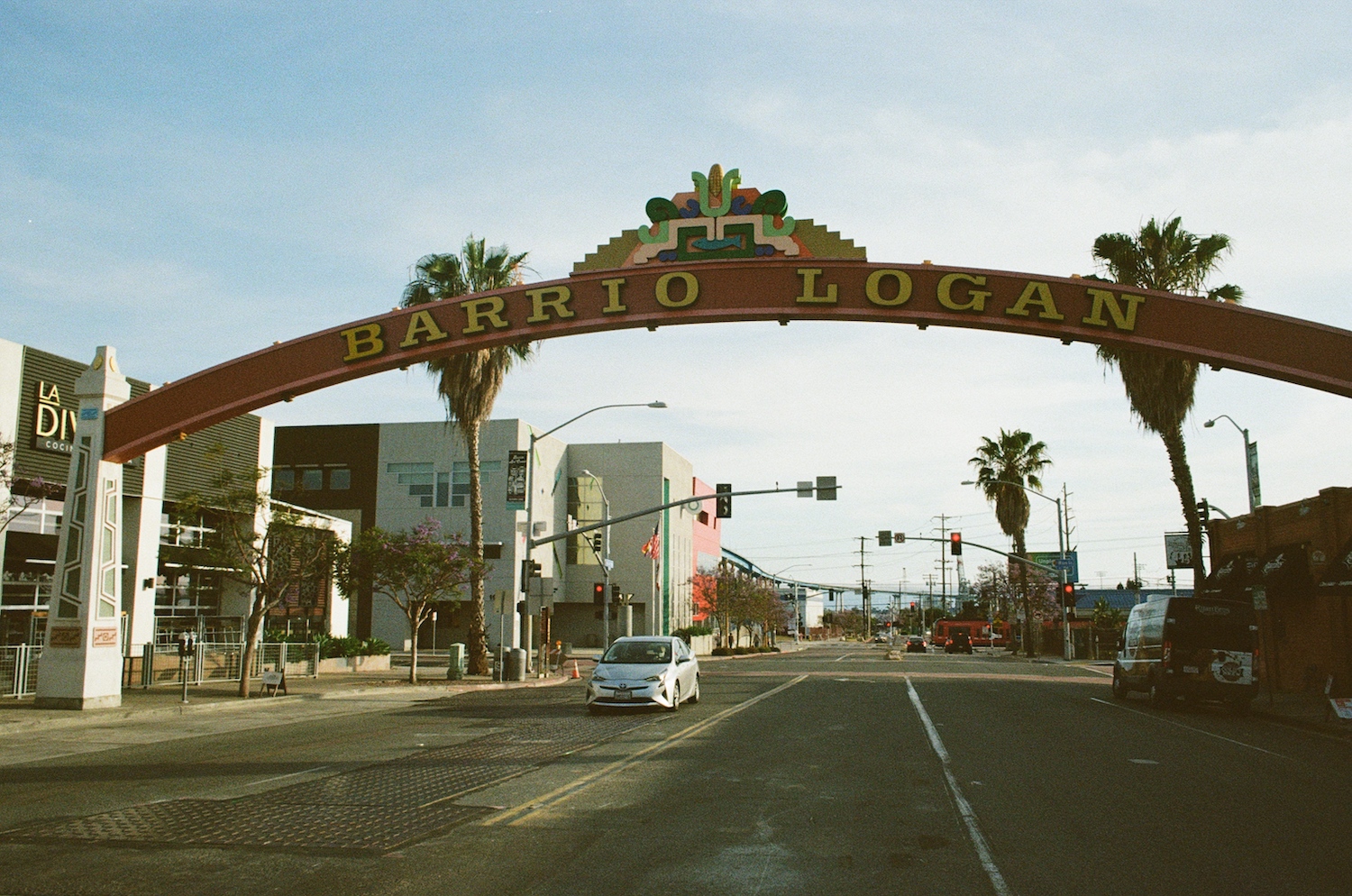
Facts About Barrio Logan
- Barrio Logan’s Chicano heritage began with an influx of refugees during the 1910 Mexican Revolution.
- Chicano Park, with its massive murals painted on the Coronado Bridge support pillars, was designated as a historic landmark in 2016.
- The average price of a single-family home in Barrio Logan is $653,488.
- Barrio Logan residents had direct beach access to the bay until World War II, when the San Diego naval base expanded.
- Famous Mexican-American muralist Salvador Torres, who many consider the conceptual father of Chicano Park’s murals, grew up in Barrio Logan.
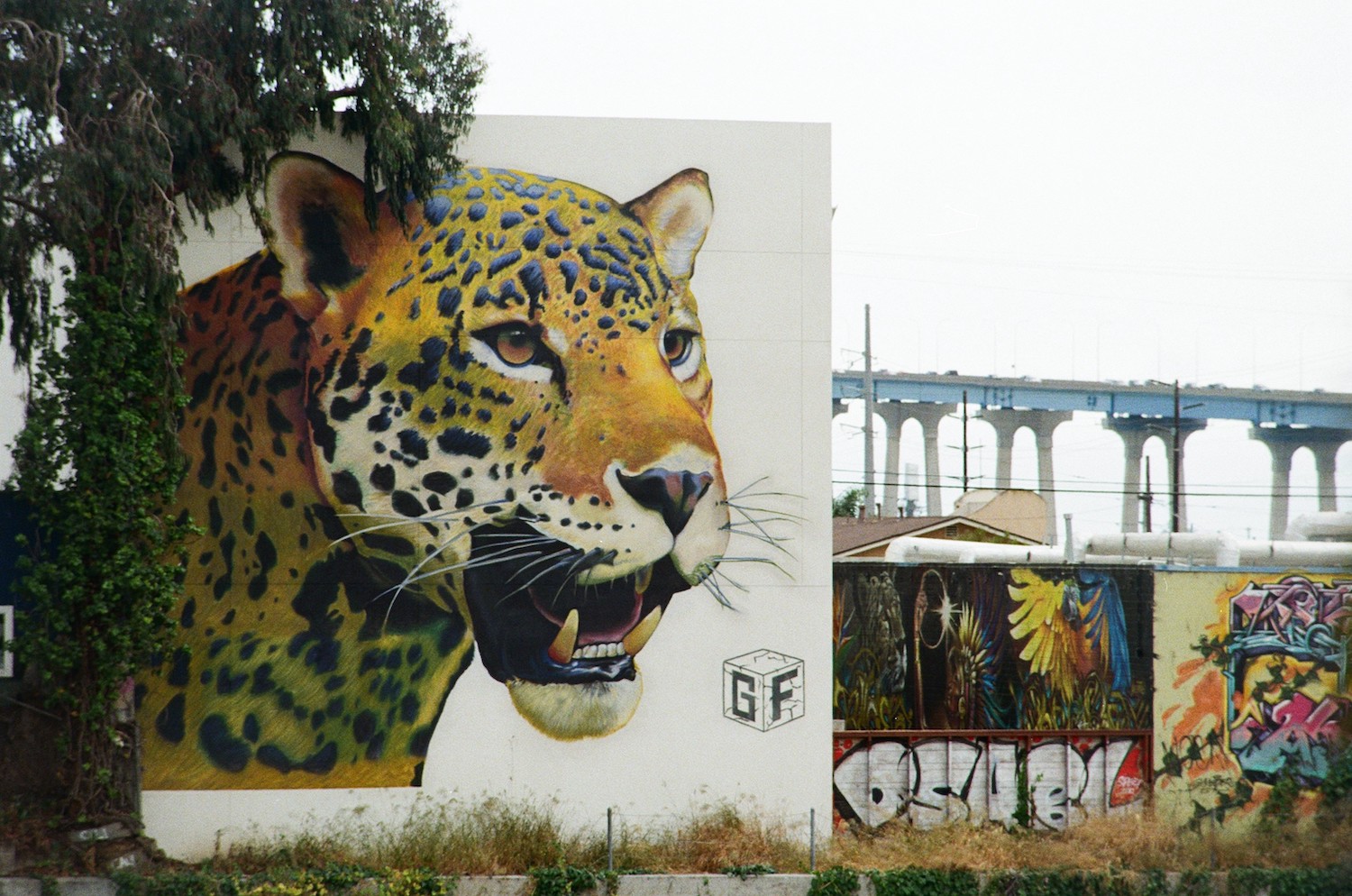
What’s Next for Barrio Logan
Taco institution ¡Salud! and adjoining Mexican-Japanese restaurant La Bamba Room closed after owner Ernie Becerra’s negotiations to renew the lease failed. The nationally acclaimed ¡Salud! opened in 2015 and anchored a vital corner of Logan Avenue, helping draw visitors to the area. Becerra will continue to offer catering services, but it’s unknown whether he will reopen in another location.
While the shuttering of ¡Salud! will certainly bring changes to Barrio Logan, the community looks to the future with a hopeful new blueprint. Barrio Logan residents had direct beach access to the bay until World War II, when the San Diego naval base expanded.
Concerns over bad air quality and its effects on public health have long plagued Barrio Logan and its residents, who experience one of the highest rates of asthma in California. The area’s new community plan finally passed late last year following approval by local authorities and the California Coastal Commission. Chief among its wins is the sought-after buffer zone between the commercial and residential zones to prevent air pollution.
The document will also help secure increased green spaces, better public transportation, and affordable housing, with the intention of ensuring that longtime residents are able to remain in the neighborhood despite the quickly gentrifying housing market.
But that’s not the only victory of the grassroots Chicano community’s efforts. The Port of San Diego has agreed to double their annual funding for combatting industrial effects within their area of influence, chiefly Barrio Logan, Logan Heights, and National City. A total of $1.5 million per year will be dedicated to environmental justice programs.
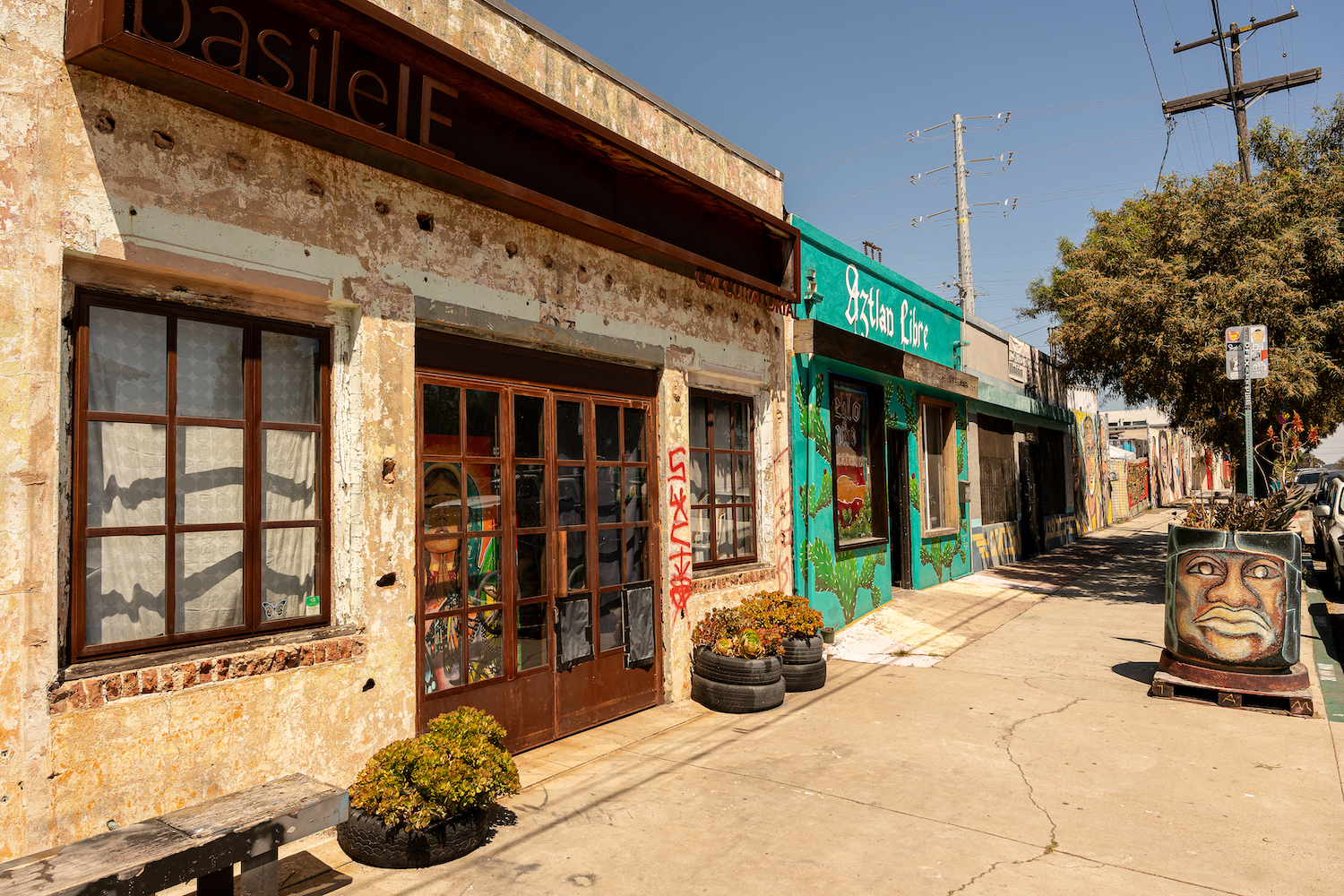
Where to Eat in Barrio Logan
Where to Shop in Barrio Logan
More Things to Do in Barrio Logan
PARTNER CONTENT
